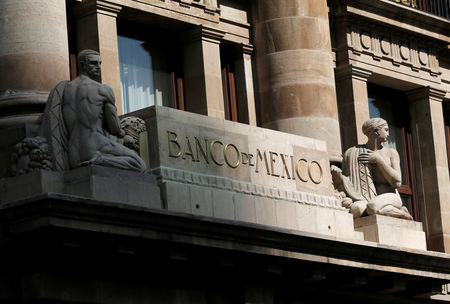

Investing.com – As the United States considers imposing a blanket 25% tariff on imports from Canada and Mexico, the two countries face crucial decisions on how to respond to this potential trade shock.
Analysts at BofA Securities warn that the tariffs, if implemented, could escalate into an all-out trade war, with major economic repercussions for the three countries.
The proposed tariffs, expected to take effect on January 20, would target all imports from Canada and Mexico. The United States justifies this step as a way to address its trade deficit, which is large with both neighbors.
However, the interconnectedness of these economies complicates matters. Nearly 30% of Canada's GDP and 40% of Mexico's GDP are linked to trade with the United States, underscoring both countries' heavy dependence on their southern neighbour.
Bank of America analysts point to a crucial distinction in the ability of the Bank of Canada and the Bank of Mexico to mitigate the economic fallout from the trade conflict.
The two institutions operate within inflation targeting frameworks but face different constraints.
The Bank of Canada is in a position to adopt an accommodative stance, potentially cutting interest rates to offset economic pressures.
With Canada's inflation rate currently at the 2% target and core inflation measures similarly stable, the Bank of Canada has the flexibility to support the economy by easing monetary policy.
Such an action would also weaken the Canadian dollar, helping to soften the blow to Canadian exports.
In contrast, the Mexican Central Bank faces more stringent restrictions. Mexico's headline inflation rate is 4%, well above the Bank of Mexico's 3% target, and core inflation remains stubbornly high.
Long-term inflation expectations are unstable, which limits the Bank of Mexico's ability to cut interest rates. Bank of America analysts expect the Bank of Mexico to proceed cautiously, with modest interest rate cuts already factored into its 2025 outlook.
While the two countries are likely to respond with targeted tariffs, the report suggests that avoiding escalation may be more beneficial in the long term.
Mexico, for example, has already shown its willingness to comply with US demands by imposing its own tariffs on Chinese goods to address concerns about it being a conduit for Chinese imports.
Likewise, the two countries have stepped up their efforts to address US concerns about drugs and illegal immigration, key conditions linked to the proposed tariffs.
Although Bank of America Securities considers the imposition of tariffs unlikely, given these mitigating measures, the risks cannot be ignored.
For Canada and Mexico, the choice is between calculated retaliation and proactive diplomacy to avoid economic disruption.
For both countries, prioritizing economic stability while protecting long-term trade relations with the United States will remain the biggest challenge.





